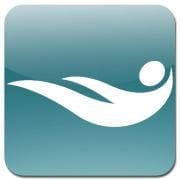Recovery Resource Council
Drug Rehab Center in Fort Worth, Texas
Recovery Resource Council in Fort Worth, Texas is an addiction treatment facility that offers comprehensive services for addiction, substance abuse, and mental health issues, providing a variety of treatments, support groups, and counseling to help individuals and their families throughout the recovery process.
About This Fort Worth, TX Facility
Recovery Resource Council, located in Fort Worth, TX, stands out as a beacon of hope for individuals and families grappling with addiction. With over 50 years of experience, this nonprofit organization is dedicated to conquering addiction and healing families. It uniquely bridges the gap between those in need and the vital substance abuse services they require, emphasizing a commitment to wellness and recovery from alcohol, substance use disorders, and trauma.
Accredited by CARF and JCAHO, Recovery Resource Council offers a comprehensive suite of services designed to address the multifaceted nature of addiction. Their approach is rooted in providing hope and facilitating meaningful change, catering to low-income, uninsured, or under-insured youth and adults in North Texas. The Council's long-standing presence in the community underscores its effectiveness and dedication to making a difference.
- Comprehensive Services: Offers a wide range of treatments including drug rehabilitation, intensive outpatient programs, and aftercare.
- Dual-Diagnosis Care: Provides specialized levels of care for individuals facing both mental health issues and addiction, ensuring a holistic approach to recovery.
- Accredited and Experienced: Boasting accreditations from CARF and JCAHO, Recovery Resource Council is a trusted provider of addiction treatment services.
Recovery Resource Council addresses various addictions and issues, including substance abuse, alcohol dependency, and trauma. Utilizing a blend of treatments such as medically-assisted detox, medication-assisted treatment, and psychosocial rehabilitation, alongside intensive outpatient and intervention services, they offer tailored care plans to support individuals through every step of their recovery journey.
Genders
Ages
Modality
Additional
Accreditations

JCAHO

CARF
The Commission on Accreditation of Rehabilitation Facilities (CARF) is a non-profit organization that specifically accredits rehab organizations. Founded in 1966, CARF's, mission is to help service providers like rehab facilities maintain high standards of care.
Conditions and Issues Treated
Opioid addiction involves addiction to legal or illegal opioids. It may happen very quickly with any opioid use. Sometimes within a matter of days. Opioid addiction is a known as a high-risk factor for future heroin addiction.
Opioid withdrawal can be extremely uncomfortable and lead the user to continue to use even if they want to quit. Stopping using an opioid requires careful medical observation. Sometimes the withdrawal can persist for many weeks, which can put the user at a high risk for relapse.
It is recommended to receive inpatient treatment and a medically supervised detox like those offered at Recovery Resource Council in Fort Worth, TX, TX, to manage the withdrawal process while learning lasting tools to maintain recovery. In some circumstances medications can be used to manage opioid addiction.
Levels of Care Offered
This center offers a variety of custom treatment tailored to individual recovery. Currently available are Drug Rehab, Intensive Outpatient, Intervention, Outpatient, with additional therapies available as listed below.
Intensive outpatient programs are an integral part of the continuum of care for people addicted to drugs and alcohol. Most intensive outpatient programs in Fort Worth, TX comprise a 3-hour session three times a week. Usually, the intensity of these programs diminishes over time. These programs offer a range of services, including counselling, medical treatment, and monitoring alcohol and drug use. The programs are ideal for people who do not need treatment at an inpatient or residential facility and continue to need extended care and support.
Outpatient treatment is treatment that occurs when a patient is not checked into a rehab facility. The patient may show up for therapy sessions, go through detox and engage in other therapies to help them recover. However, they will do so while they live at home in Texas.
Outpatient therapy provided by Recovery Resource Council is usually recommended as a follow up to inpatient therapy. It helps patients adapt to their normal lives after treatment. In some cases, it can also be an alternative to inpatient treatment. People may choose this route if they are unable to leave their jobs, children or if they don’t have the money for inpatient treatment. However, inpatient treatment is the best way to recover from addiction.
An intervention is a meeting held by families and friends of the addicted party, managed by Recovery Resource Council. It lets the person know that their loved ones are concerned about them. It is intended to make the addicted party agree to get help.
Interventions are often hosted by a mental health professional in Texas who knows how to communicate with people dealing with addiction. These intervention services can make all the difference when it comes to getting loved ones to agree to treatment.
Recovery Resource Council‘s Therapies & Programs
Individual therapy aims to identify the core issues that would have led the patient to substance abuse and address the root cause effectively. Patients find the therapist as a person who they can trust. It helps them to open up and discuss personal and sensitive issues, which they may not be comfortable discussing in a group.
Group therapy happens at Recovery Resource Council in a controlled group environment, as opposed to a one-on-one setting. It supports Fort Worth, TX patients’ recovery by offering a sense of comfort and letting them know that they are not alone. Through shared conversations, patients also learn to develop faith and understanding and gain insight on their addictions.
Unresolved trauma is often a key reason why many patients resorted to substance abuse. Trauma therapy refers to treatment wherein specialist therapists help the patients to resolve the trauma that led the patients to substance abuse. The trauma could be physical abuse, sexual abuse, war, natural disasters, divorce, accident, loss of a loved one, etc. Thinking of these traumatic events causes emotional disturbances like anxiety, depression and results in addiction. If trauma is the primary cause of substance abuse, then both issues must be addressed. Otherwise, there is a risk of relapse. Trauma therapy also improves the cognitive functions and provides long term benefits.
Payment Options Accepted
For specific insurance or payment methods please contact us.
Additional Details
Specifics, location, and helpful extra information.
Fort Worth, Texas 76111 Phone Number(817) 332-6329 Meta DetailsUpdated April 15, 2024
Staff Verified
Patient Reviews
There are no reviews yet. Be the first one to write one.
Fort Worth, Texas Addiction Information
Texas is one of the primary hubs for drug smuggling into the country. The border between Texas and Mexico is more than 1,000 miles long. More than 10 million residents use alcohol every year and more than 25% of those are minors. Alcohol and drug use has become so common in Texas that almost 15% of all deaths can be attributed to these substances.
Fort Worth has the highest rate of drug overdoses in the state. 1 out of every 8 Fort Worth residents struggles with a substance abuse problem. In 2016, there were nearly 1,000 overdose deaths in the city. Prescription painkillers are often accessible and cheaper than street drugs. Heroin and methamphetamine are also becoming common addictions. Fort Worth has several detox and rehabilitation facilities that help individuals overcome their dependence on drugs and alcohol.
Treatment in Nearby Cities
- Port Arthur, TX (281.6 mi.)
- San Marcos, TX (202.9 mi.)
- Grand Prairie, TX (18.1 mi.)
- Hico, TX (68.8 mi.)
- Borger, TX (308.1 mi.)
Centers near Recovery Resource Council
The facility name, logo and brand are the property and registered trademarks of Recovery Resource Council, and are being used for identification and informational purposes only. Use of these names, logos and brands shall not imply endorsement. RehabNow.org is not affiliated with or sponsored by Recovery Resource Council.













